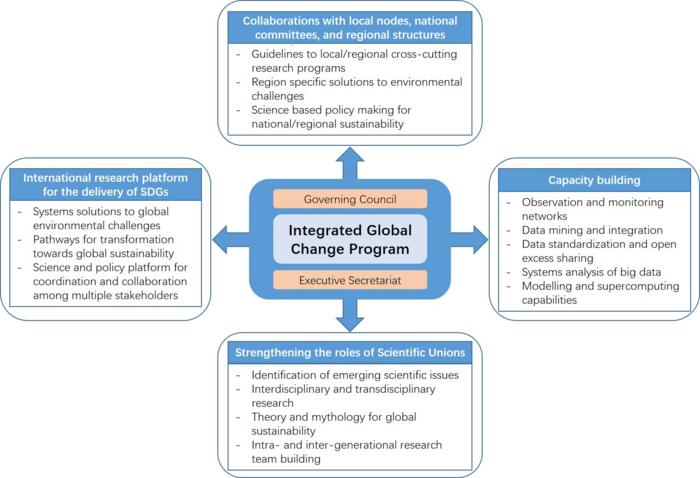The global change program Future Earth is an international alliance of organizations and agencies that was launched by the UN in June 2012. The Future Earth 2025 Vision identified eight global challenges for scientific research to accelerate progress in sustainability, improve collaboration, and mobilize resources.

Credit: Yonglong Lu, Xiamen University, China
The global change program Future Earth is an international alliance of organizations and agencies that was launched by the UN in June 2012. The Future Earth 2025 Vision identified eight global challenges for scientific research to accelerate progress in sustainability, improve collaboration, and mobilize resources.
After more than a decade of this global change program, researchers are analyzing the challenges Future Earth has faced and the path forward. Discussion presented in a recently published paper reviews these challenges faced by the coalition and proposes solutions to help these programs meet the many needs of the global community.
The paper was published on November 15 in Ecosystem Health and Sustainability.
“The current global change program Future Earth has been modest in inspiring ground-breaking research to address major sustainability issues. In this article, we reflect on the UN request for global science to promote the delivery of sustainable development goals, giving our perspective with a focus on the future development of the global change program,” said Yonglong Lu, a Chair Professor at Xiamen University in Fujian, China.
Three major challenges faced by the global change program were identified. The authors first point to a lack of visibility for Future Earth among the global science community. They attribute this to a lack of engagement with disciplinary scientific unions, which often drive and promote research and collaboration. This lack of engagement makes it difficult for Future Earth to inspire the groundbreaking research needed to meet its goals.
Because of this lack of engagement with the international science community, Future Earth developed a “top-down approach” to developing priorities and programming. This approach neglects the local communities that are impacted by sustainability programs and prevents Future Earth from responding nimbly to communities’ needs.
The final challenge presented by the paper is that the global South is underrepresented in Future Earth. “In fact, there are tremendous opportunities in the global South to tackle emerging scientific issues, such as water security, environmental pollution, food safety, and human health, resulting from rapid economic and societal transformation,” said Lu.
Finally, the paper provides specific recommendations to help make a stronger, integrated global change program to achieve the goals set forth in the UN 2030 Agenda for Sustainable Development. These five recommendations range from using the integrated global change program as a major international research platform to shifting focus to translating research and science into policy.
“In order to address the global grand challenges and act as an international authoritative source of knowledge, an integrated global change program should be more active and agile in order to respond to the large-scale, complex, and urgent issues that the global society is facing, while recognizing the dynamic interactions among coupled human-natural systems,” said Lu.
Researchers also highlighted the importance of involving the global South and a variety of stakeholders, from global industry to business to national, state, and local governments.
Looking ahead, researchers emphasize that any new integrated global change program will need to bring together stakeholders and foster collaboration.
“We need to build a collaborative sustainability science alliance across geopolitical divides. This program will help develop and implement global and national science, technology, and innovation for sustainable development goals roadmaps, share science and knowledge to address the human needs for water, health, quality education, sanitation, and food security while maintaining the global ecosystem and planetary health,” said Lu.
Other contributors include Prof. Bojie Fu of the Research Center for Eco-Environmental Sciences at the Chinese Academy of Sciences in Beijing, China, Prof. Tandong Yao at the Institute of Tibetan Plateau Research at the Chinese Academy of Sciences in Beijing, China, and Prof. Dahe Qin at the North-western Institute of Eco-Environment and Resources at the Chinese Academy of Sciences in Lanzhou, China. All the authors have been involved in the initiation and review process of Future Earth and the previous global environmental change programs.
The National Natural Science Foundation of China, the International Partnership Program by the Chinese Academy of Sciences, and the Fundamental Research Fund for the Central Universities supported this research.
Journal
Ecosystem Health and Sustainability
DOI
10.34133/ehs.0143
Method of Research
Commentary/editorial
Subject of Research
Not applicable
Article Title
Priority Actions for Enhancing Global Change Program to Provide Global Sustainable Solutions
Article Publication Date
15-Nov-2023
COI Statement
No conflict-of-interest related.




